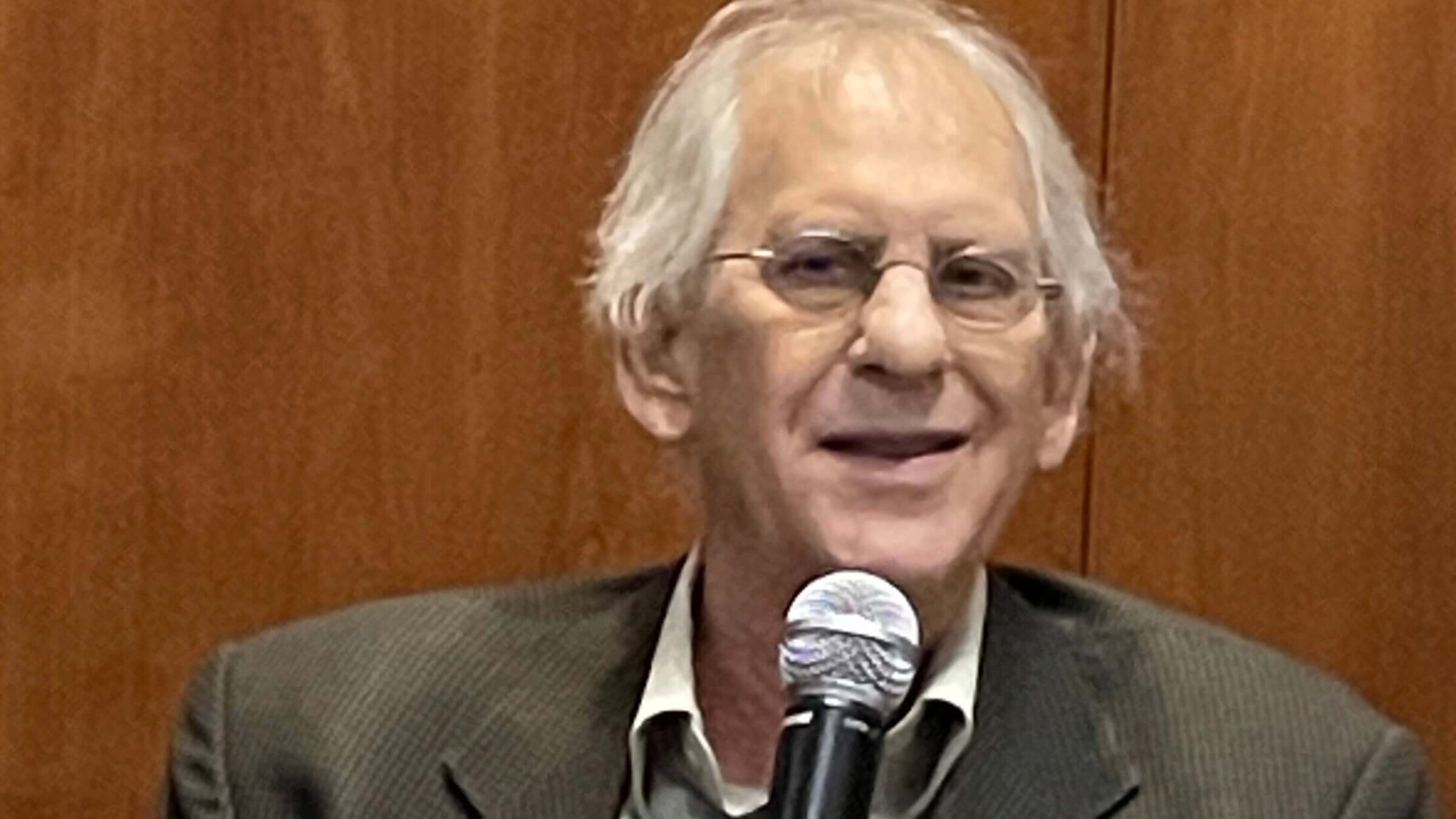Elegy for a gentleman, a scholar, and an avowed Jewish radical with an infectious, beautiful smile
Remembering a lifetime of friendship with David Biale

David Biale Courtesy of Rachel Biale
It was at a UCLA graduate seminar taught by Amos Funkenstein in 1974 where I recall first taking in the tiny, very young, intellectual-powerhouse Racheli Biale, just off the farm then a dead ringer for mega-brain Hannah Arendt. And Amos — brilliant and idiosyncratic — much resembled Franz Kafka. A crowded, intellectually haunted Central European room
It was David, a new friend, who encouraged me, then a Russian history major, to join him and others in that room studying medieval Jewish exegetical texts, a suggestion that would change the course of my life. What I remember about David most vividly is that infectious, beautiful smile. When grinning widely he looked much like Christopher Lloyd in Back to the Future — a bouncy, animated man only a few years beyond his own adolescence, full of excitement over every single new discovery with a face that would never age as it grew older until, perhaps, the last week or so of his life.
And never did he seem to lose any of his astonishment about the simple fact that one actually could draw a salary to support a life spent in asking impossibly difficult questions about one’s own people. This a reasonably accurate definition of a Jewish studies scholar. Eventually, David would come to employ much the same uncommon analytical skill to the scrutiny of his own body as he meticulously explored it as something of a late-life oncologist-in-training composing densely detailed — at times eerily dispassionate — explications of the cancer as it moved inside of him.
It wasn’t a “career” in Jewish studies that we were preparing for. No one — at least, no one I knew on our side of campus — used the word “career” to describe the future. And Jewish studies as a field didn’t yet really exist. There were those intellectual dynasties at Columbia, Brandeis, Brown or Harvard headed by an array of Orson Welles-like figures known for their distinctive oddities, their larger than life idiosyncracies.
David, Racheli and I all entered academia at the time as avowed Jewish Radicals but what this meant — as I now reconstruct it — was to be open to unguarded criticism, no matter how unsettling even savage. Radicalism translated itself into a commitment to strenuous, unrestrained scrutiny of everything near and dear — this including our own biases and predilections. It didn’t mean smugness but rather its polar opposite. David chose to write his dissertation, later the first of his many remarkable books, on one of the most savage of them all, Gershom Scholem. We did what we did as we understood it to scrutinize everything not the least of which our own hierarchies. This is why David, consummate secularist and author of Not in the Heavens, could effortlessly move into the role of a leading figure in the production of a monumental collective history of Hasidism.
My last full conversation with David just last week and lasting at least an hour was about book written by a colleague which David liked more than me and he set out to persuade me that I was wrong which he so deftly did. There on a hospital bed in their treehouse high amid the redwoods packed with far too many figurines – I’d long felt these figurines filling every crevice of those rooms must have fornicated lavishly producing replicas of themselves small and large — there he was on his deathbed making his case with utter clarity and persuasiveness. Still that precocious boy I met 50 years ago with his afro-like hair and his infectious smile and his enticingly capacious mind and his intensely smart and generous wife Racheli somewhere always busy nearby.
David, I’ve known you forever. Really ever since I emerged from childhood’s cocoon. A brother but unlike those scheming brothers born to Jacob. More akin, say, to Brod and Kafka, or Ansky and Zhitlovsky. A brother whose voice is quite nearly always in one’s head, a brother with whom one sometimes competed — all siblings, nearly all dear friends do– a brother who loved the other in ways incomparable.






















